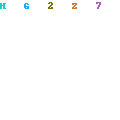Q:
Dear Mr. Miller,
In the section "Variations of Q from Masoretic" of your comments to your translation of Column VIII of The Great Isaiah Scroll 8:8 to 9:11, you indicate the following: (Line 20: 3rd word: Q adds final "he" to the word "higaltah" (you increased) and in the 4th word "simcha" (joy) for the same reason described in ther last note. Line 21: 3rd word begins vs 3 Heb, Eng vs 4. The word "kiy" has a superfluous yod in Q. Line 22: 2nd word is Midian spelled "midiym" in Q and "midiyn" in the masoretic. Line 25, 1st word: "ha-misrah" has a yod over it which would make it to be pronounced "ha mi siy rah").
I wonder why you do not include the line 24 in the variations list.
Your translation of the line 24 reads:
"24. his shoulders and he shall be called wonderful, counsellor, mighty God, everlasting father the prince of peace." The Tanach translation of this line reads: "For a child has been born to us, a son given to us, and the authority is upon his shoulder, and the wondrous adviser, the mighty God, the everlasting Father, called his name, "the prince of peace."
I am sure you can agree that there is a great difference between "he shall be called mighty God, prince of peace" and "the mighty God called his name 'the prince of peace'".
How can you explain this discrepancy, please?
Yours sincerely,
(Name removed)
A:
Dear ------,
In English it is Isa 9:6, in Hebrew it is Isa 9:5.
The Hebrew masoretic text is plain. וַיִּקְרָ֨א He shall be called. Not He shall call. The dagesh (dot) in the yod indicates an elided nun making the verb a niphal 2nd stem meaning "he shall be called." The qal or 1st stem would be he shall call. The masoretic (Jewish) text reads "He shall be called." However even if it were a first stem the subject could not be el gibor (mighty God). The placement of el gibor in the sentence makes it one of the titles given to the son who is given to us. It is impossible for it to be the subject of וַיִּקְרָ֨א.
It is obvious why Jews, who do not believe in the messianic Mission of the Nazarene, would want to alter this verse from the masoretic meaning of its text. They also change the tense of the verb from an imperfect implying future to past (called) implying a perfect tense verb which it is not. I believe that Majorettes were correct and that the current modern Jewish translation of this verse is unscholarly to say the least.
all the best,
Fred P Miller


0 comments:
Post a Comment